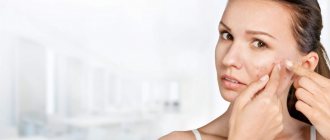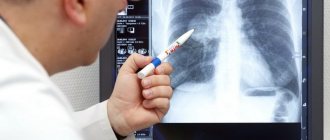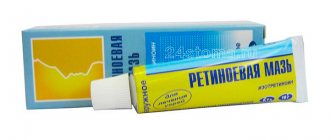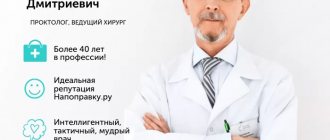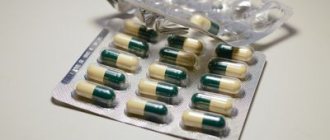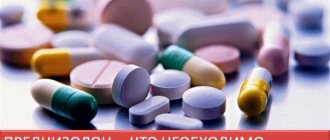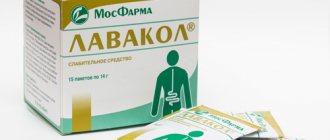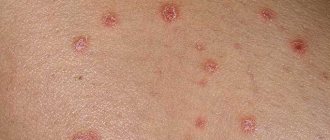Among the many medications used for acne are a group of retinoids, derivatives of vitamin A.
Although topical use of these agents is quite common, with dry skin being the main side effect, their oral use carries a risk of fetal harm if pregnancy occurs during or in the short term after completion of treatment.
Deterioration of liver and lipid parameters of the body is also often observed. Therefore, oral retinoid therapy is reserved exclusively for the most severe forms of acne.
What is isotretinoin
Isotretinoin is an organic chemical compound and a synthetic derivative of vitamin A, which is a stereoisomer of all-trans retinoic acid (tretinoin). It is a potent substance used primarily in the treatment of all types of acne, including nodular cystic acne and pimples.
In particular, isotretinoin is used to combat severe forms of the disease that are resistant to standard treatments. The effect of the drug is to stop the growth of the sebaceous glands and reduce their activity. In small doses, dermatologists successfully treat other skin diseases with it - seborrhea, seborrheic dermatitis and rosacea. Retinoids also provide excellent results in anti-aging treatments.
Clinical studies have shown that this substance is very effective in treating acne. It is ideal for cases where antibiotics or other topical medications do not help. It has also been found that in addition to reducing the activity of the sebaceous glands of the skin (up to 80%), isotretinoin causes a reduction in their size by 35-58%, stimulates the renewal of epidermal cells and reduces their keratinization. The drug also has an anti-inflammatory effect.
People struggling with severe acne write rave reviews about the results of using the drug on online forums. Spectacular photographs taken before and after treatment are posted on social networks. The prospect of getting rid of annoying defects that significantly spoil your mood is tempting. However, before considering such treatment, it is worth learning more about it.
Why does acne occur?
The content of the article
Acne is a group of diseases associated with disorders of the sebaceous glands. The most popular form of acne appears to be acne vulgaris, which usually affects teenagers and some adults. As a result of hormonal changes, the sebaceous glands produce excessive sebum. In addition, we often encounter increased keratosis of cells that clog the excretory ducts, which contributes to the formation of acne and purulent pustules.
Fact 1. Treatment of acne with isotretinoin requires close supervision by a dermatologist.
The drug is available by prescription and should be used under the supervision of an experienced dermatologist. Isotretinoin may not cure acne, but may harm your health. The dermatologist individually selects the appropriate form and dose of the medicine for each patient, calculates the frequency of administration and duration of treatment.
In the treatment of milder acne, isotretinoin is used in lower doses, and in cases with complex acne, including genetic background, doses with higher concentrations are recommended. Also, the dose of isotretinoin is adjusted depending on body weight, type of acne, location (only the face, as well as décolleté and back), severity and depth of scars.
Isotretinoin for acne can be used in different forms - orally and topically. When treating severe forms of acne, ointment is used, since it contains the maximum permissible concentration of the active substance, due to which it shows the highest intensity of action. Gels are recommended for milder forms of acne. They have a light texture and are quickly absorbed through the skin. The drug in the form of a cream contains the lowest concentration of the active substance and is most often used to maintain the effects of treatment.
The course of treatment lasts from 16 to 24 weeks. Each patient is treated individually, so don't ask your friends what dosage they are taking.
After the first course of treatment, its effectiveness is assessed. If therapy is unsuccessful, therapy can only be resumed after 8 weeks. For treatment to be effective and safe, it is imperative to follow the recommendations of your doctor.
Attempts to treat skin diseases (Darier's disease, ichthyosis, psoriasis, acne) with high doses of vitamin A have been made since the 90s of the 20th century [31]. However, significant toxicity (increased intracranial pressure, headache, irritability, changes in the skin, mucous membranes, skeleton) limited the possibilities of therapy. Systemic administration of retinoic acid was also accompanied by high toxicity. The search for less toxic analogues and the synthesis of retinoids began by modifying the vitamin A molecule in the region of one of the three main structural components - the cyclic end group, the polyene side chain and the polar end group.
The first retinoid-13-cis-retinoic acid (isotretinoin) was synthesized in 1955. Isotretinoin was first tested for the treatment of psoriasis in Europe in 1976. Subsequently, the drug underwent clinical trials in the USA and was approved for the treatment of severe manifestations of nodular cystic acne . The range of uses of isotretinoin has expanded, and it is now also recommended for the treatment of moderate acne and diseases that are resistant or recur after traditional treatment. In addition, the drug is effective for the treatment of a number of skin keratinization disorders and for the prevention of skin cancer in individuals at high risk [29]. The use of isotretinoin for the treatment of various forms and degrees of acne severity has significantly improved the quality of life of patients all over the world [30]. Currently, studies are being conducted on the effectiveness of the drug for rosacea, lupus erythematosus, and hidradenitis suppurativa [1, 2, 11, 17, 20, 33, 39].
According to epidemiological studies, about 70-80% of adolescents suffer from acne, with a peak incidence at 16 years of age. The occurrence of severe and moderate forms is 20-35% of the total incidence. In approximately 10% of patients, acne persists until the age of 25 or older [24, 36, 42].
In recent years, researchers have noted a significant increase in incidence in general, especially among middle-aged women with late-onset acne (acne tarda), emerging for the first time or existing for a long time [13, 22, 27, 46].
Racial and ethnic factors influence the prevalence and determine the severity, clinical presentation, and complications of the disease. Environmental factors, psychological stress, smoking, peripheral hormonal dysfunctions, hereditary predisposition also appear to be related to the spread, and many authors consider acne as a disease of civilization (Fig. 1)
[28].
Figure 1. Acne is a disease of civilization.
Particular attention was paid to the diet (carbohydrates and dairy products). Currently, the development of the disease is associated with high glycemic loads and consumption of dairy products. Insulin, IGF-1 and leucine activate the intracellular multimolecular signaling complex mTORC1, which stimulates protein synthesis and regulates cell growth and proliferation. Substance P receptors, neuropeptidases, melanocyte-stimulating hormone, and corticotropin-releasing hormone (ACTH)-R1 are also involved in the regulation and activity of the sebaceous gland (Fig. 2).
Figure 2. Some aspects of acne pathogenesis. The severity and/or duration of the disease determine the need for active treatment in at least 15-30% of patients [6, 13, 34, 47].
The decision to prescribe systemic therapy is influenced by both the clinical severity of the disease and predictable complications: first of all, the tendency to the formation of post-inflammatory phenomena (spontaneous scarring, dyschromia). The choice of therapy is also influenced by problems with the mental health of patients caused directly by acne, even with mild forms of dermatosis or scars [2, 4, 10-12, 15, 35].
Systemic isotretinoin is the only drug that affects the four generally accepted pathogenetic mechanisms of acne development [41, 43]. Isotretinoin suppresses comedonogenesis, promotes a significant reduction in the size of the sebaceous glands, inhibits the terminal differentiation of sebocytes and thus reduces the secretion of sebum [47]. The drug indirectly affects the microclimate of the pilosebaceous follicle, which makes it unfavorable for the proliferation of P. acnes. In addition, it has keratolytic and anti-inflammatory effects. The anti-inflammatory effect appears to be due to modification of monocyte chemotaxis [25, 34].
Isotretinoin can be considered a prodrug because it is converted intracellularly into at least five biologically active forms. It is possible that individual differences in the concentrations of these metabolites in plasma determine the unequal therapeutic effectiveness and severity of side effects of the drug. Isotretinoin metabolites act at the genetic level. Temporary changes in the expression of a number of genes in the skin of patients are determined by the duration of therapy. Differences in the expression of genes of interest before and during treatment underlie the clinical, histological and biochemical changes that occur under the influence of isotretinoin [31]. At the end of the 1st week of treatment, the expression of genes encoding differentiation markers and serine proteases, as well as tumor growth suppressor genes, increases. This achieves a rapid effect on the cell cycle and induction of sebocyte apoptosis. By the 8th week of therapy, there is a significant decrease in the expression of genes whose products are involved in lipid metabolism, which is consistent with a significant decrease in the size of the sebaceous glands. It is hypothesized that the sebaceous glands subsequently undergo changes and remodeling similar to the healing process of a wound defect, which explains the increased expression of extracellular matrix proteins. It remains unclear how long-term remission or complete recovery is achieved with isotretinoin treatment, since sebaceous gland function is restored several months after discontinuation of the drug [37].
Isotretinoin is the only drug that has a rapid effect and with treatment it is possible to achieve permanent remission of acne [24, 25]. According to various authors [44, 45], the cure rate is 38–86%. In general, isotretinoin treatment is better tolerated with fewer side effects when given intermittently. According to studies [23, 26], this approach is more preferable for patients, but in these groups of patients relapses are more often recorded (up to 39%).
In one study, patients were followed for 10 years. In more than 60% (88) of patients, one course of isotretinoin therapy led to clinical cure. Relapses were observed in 39% of patients during the first 3 years after the course of therapy. More than half of them required a repeat course of isotretinoin. These were mainly patients with severe manifestations on the skin of the trunk and/or taking the drug at a lower dose (0.5 mg/kg) [27, 35].
In 85% of patients receiving isotretinoin for acne at a dose of 0.5-1.0 mg/kg per day after 16 weeks, clinical recovery is recorded, in 13% - after 5-6 months, 3% of patients require longer treatment . Less than 1% of patients require at least 12 months of continuous treatment. Clinical analysis of cases with a slowly developing therapeutic effect shows that this phenomenon may be due to the presence of macrocomedones and hyperandrogenism (in 70% of such patients). In 25% of cases, there is an early exacerbation of the disease after the start of therapy, impaired absorption of the drug, colonization with S. aureus
, severe and unusual types of acne. In 5% of patients, the reasons for the low effectiveness of the drug remain unclear [23, 24, 34].
In the USA in 1996-1998. More than 6 million acne-related visits to doctors were recorded, and 6.5 million prescriptions for systemic drugs (antibiotics or isotretinoin) were written [46]. According to expert estimates, the cost of acne treatment in the United States exceeds $1 billion annually [45]. Worldwide, 2.1 billion is spent on acne treatment per year. Calculation of the cost of acne therapy in Germany gives a total amount exceeding 400 million euros per year and 18.3% of the total cost of treating skin diseases worldwide [29, 32, 33, 40].
There is practically no reliable information on studying the cost of treatment with external drugs. Regarding the cost-effectiveness of systemic therapy, in terms of long-term outcome of therapy, the results of international studies support isotretinoin therapy for severe and moderate forms of the disease [43, 44, 45]. The advantage of isotretinoin is based on the price/clinical effectiveness ratio with long-term follow-up and the actual achievement of a significant improvement in the quality of life of patients. The initially higher cost of treatment is later compensated by its high efficiency and the absence of the need for additional costs [38].
According to A. Layton [34], systemic isotretinoin is superior in therapeutic efficacy to systemic antibiotics for any severity of acne. According to studies conducted in the UK, France, New Zealand and Australia, a 4-6 month course of isotretinoin therapy is significantly cheaper than a 3-year course of therapy with various antibiotics and external agents. The release of generic isotretinoin has had a positive impact on the cost-effectiveness of systemic retinoid treatment.
The main problems when using isotretinoin come down to monitoring biochemical blood parameters (triglyceride and cholesterol levels), timely detection of mental disorders and, most importantly, reproduction control. When women take isotretinoin in the first trimester of pregnancy, at least 50% of fetuses develop serious intrauterine anomalies, including pathologies of the cardiovascular and central nervous systems, craniofacial structures, skeleton and sensory organs. In order to prevent congenital deformities, the federal iPledge program has been developed in the United States, according to which all patients receiving isotretinoin must be registered and have a personal registration number, as well as doctors, pharmacists and distributors of this drug [33].
For 1984-2002 In Canada, 8609 women aged 13–45 years were registered with a prescription for isotretinoin. Of the total number of women, 90 became pregnant (32.7/1000 person-years), which is significantly greater than the generally expected risk of pregnancy with this drug under precautions (8/1000 person-years) [26]. The authors note that in Canada and the United States, isotretinoin is the most commonly prescribed teratogen, with 64% of patients having no experience with any other pharmacological treatment for acne. About 50% of all isotretinoin prescriptions are given to women of childbearing age. In Canada, the number of new prescriptions for women of childbearing age tripled from 1989 to 1999 to 210,000 per year. In the USA, 3 out of 1000 women have ever taken or are taking isotretinoin [28].
In the early 80s of the 20th century, oral isotretinoin was intended for the treatment of only severe nodular cystic forms (conglobate acne) at a dose of 0.5-1.0 mg/kg per day, depending on the severity of the disease, the extent of the process, and the patient’s body weight. At the same time, achieving a total cumulative dose of 120-150 mg/kg provides a lasting therapeutic effect. According to the European recommendations of 2006 and 2012, according to experts, isotretinoin should be considered as the first choice drug in the treatment of severe cases of the disease (nodulocystic - conglobate and severe papulopustular forms of acne) [36]. The use of systemic isotretinoin in a standard dose regimen is indicated for severe nodular cystic acne, improvement of the condition by less than 50% after 6 months of standard therapy with antibiotics and external agents, family history, early onset, acne with complications in the form of scars, concomitant psychological disorders, recurrent acne, persistence of acne after 25 years of age or late onset of the disease [1, 8, 14, 18, 33]. In this case, the optimal daily dose is 0.5–0.75 mg/kg, which provides a faster therapeutic effect with minimal side effects [9, 19].
Over the past decades, dermatologists around the world have begun to actively use “low-dose” isotretinoin regimens, which use doses below no more than 0.5 mg/kg per day, so there is no need to calculate the total (cumulative) dose of the drug. Indications for the use of this technique are non-severe forms of mild to moderate acne, resistant to standard therapy, severe sebum secretion (hyperseborrhea) [10, 16, 35, 43]. The use of low doses of isotretinoin allows one to minimize temporary undesirable effects of therapy, reduce single and course doses of the drug while maintaining its effectiveness, and reduce treatment costs. In this case, regardless of the prescribed doses, it is advisable to calculate the average dose received in mg/kg/day, which can vary from 0.14 to 0.5 mg/kg/day [23, 43, 45].
When prescribing low doses for mild acne abroad, the following four regimens are distinguished [24, 28, 35, 36]:
1) 10 mg/day for 4 weeks regardless of body weight; then 10 mg every 5 days a week, then 10 mg every 3 days a week; then 10 mg every 2 days a week; then 10 mg once a week. Stepwise dose adjustment is carried out monthly;
2) 5 mg/day, regardless of body weight, for a long time;
3) 2.5 mg/day, regardless of body weight, for a long time;
4) 2.5 mg/day 2 times a week for a long time.
Due to the fact that isotretinoin is not available in doses of 5 and 2.5 mg, the study authors recommend taking it 10 mg/day every other day or 10 mg/day once every 4 days.
In our country, for the treatment of moderate and mild acne, doses of 0.1-0.3 mg/kg or 10 mg/day are often used, regardless of body weight. Subsequently, it is possible to take similar doses not daily, but every other day [4, 5]. S.N. Akhtyamov et al. [5] reported the successful use of isotretinoin in 26 patients with papulopustular acne using an intermittent regimen (20 mg/day for 1 week of the month) for 12, 6 and 4 months.
With this method, the criterion for cure is a satisfactory clinical picture and the absence of new rashes for 1-2 months after reducing the dose of the drug. It should be noted that with standard treatment regimens, low doses of the drug (0.1-0.3 mg/kg) were used at the final stages of treatment. As foreign and our own experience shows, this method is appropriate for a number of conditions, including severe seborrhea, mild and moderate acne, and also allows minimizing the undesirable effects of systemic isotretinoin therapy and at the same time is a more economically advantageous method of treatment. To avoid discrediting the drug, low doses are applicable only for mild forms of acne.
Currently, the Russian pharmaceutical market for the treatment of acne has an innovative form of IT - the drug Aknekutan
[] (“Jadran”, Croatia).
The "LIDOSE" technology used in the production of Acnecutane
allows the bioavailability of isotretinoin in the drug to be increased by 20%, which makes it possible to reduce the amount of isotretinoin taken while fully maintaining its therapeutic effectiveness.
This potentially reduces the risk of side effects. The results of clinical studies convince us that Acnecutane
has an excellent safety and efficacy profile [3, 7, 12, 21, 34, 44].
Treatment tactics depend on gender, age, clinical form, extent of the skin process, and the nature of the rash; therefore, further study of the use of isotretinoin in low doses is very promising [10, 15, 22, 45], the use of which prevents the risk of developing severe side effects.
[]In Belgium, the drug is registered under the trade name IsosupraLidose and is produced.
Fact 2. Isotretinoin is prescribed when other medications do not work.
Isotretinoin is a first-line drug only for more severe forms of acne:
- purulent;
- knotty;
- cystic;
- scarring.
Currently, indications are also extended to all forms of acne that cannot be treated with other methods.
For diseases of mild to moderate severity, for example, comedones, firstly, external treatment and oral antibiotics are used. And only in case of relapse can you resort to isotretinoin.
Acne Treatment with Isotretinoin Photo Licensed by Envato Elements Item
Fact 4. The drug has side effects
Side effects may occur when using the drug in tablet form and externally in the form of an ointment, cream or gel.
Mild side effects include drying of the mucous membranes of the nose and throat, which can lead to bleeding, dry eyes, conjunctivitis and sore lips. The severity of such side effects depends mainly on the dose used and usually disappears when the dose is reduced. Some symptoms, however, may persist even after the end of therapy.
Severe complications may also occur during treatment:
- dizziness and headaches;
- drowsiness;
- pain in joints and muscles;
- increased levels of cholesterol and glucose in the blood;
- alopecia;
- hematuria and proteinuria.
Due to the risk of twilight vision impairment, extreme caution should be taken when driving at night.
To avoid side effects, you should inform your doctor before starting treatment about the following points:
- About all medications you are taking – in particular, tetracycline and medications containing vitamin A.
- About concomitant diseases, such as:
- liver failure;
- dry eye syndrome;
- increased blood lipid levels;
- vitamin A hypervitaminosis;
- asthma;
- heart diseases;
- diabetes;
- eating disorders;
- menstrual irregularities;
- problems with the skeletal system;
- problems with the digestive system;
- depression.
3. About pregnancy, breastfeeding and contraception.
Fact 5. When treated with isotretinoin, forget about pregnancy
The main contraindications to the use of isotretinoin are pregnancy and lactation. Isotretinoin has the ability to bind 99.9% to plasma proteins, therefore it easily penetrates the placenta and breast milk, and is also present in the hepato-intestinal circulation.
The use of isotretinoin during pregnancy is very dangerous, which is associated with a strong teratogenic effect. The drug can cause miscarriages and severe fetal malformations. Therefore, when treating acne with isotretinoin, it is necessary to use an effective method of contraception one month before and for two months after stopping treatment.
During treatment and for one month after its completion, you should not donate blood, as there is a risk of fetal harm in pregnant women who receive blood transfusions containing isotretinoin.
Isotretinoin and pregnancy
A fairly serious side effect of oral administration of retinoids is their teratogenic effect, that is, causing developmental defects in the fetus. Therefore, oral retinoid therapy is contraindicated in women of childbearing potential unless they are using contraception.
You also cannot make the decision to conceive immediately on the day you stop taking the drug, since you should wait until all the substance is eliminated from the body.
For isotretinoin, this period is the period of passing the next full menstrual cycle, and for acitretin (another drug from the retinoid group) it is as much as 2 years! However, this risk does not apply to male therapy, since isotretinoin in sperm does not cause developmental defects in the fetus.
Fact 6: Isotretinoin treatment requires special care
When treating acne with isotretinoin, the following symptoms are very often observed:
- dry lips;
- cracking of the corners of the mouth;
- drying of the mucous membranes of the nose, mouth and eyes;
- conjunctivitis;
- nosebleeds;
- dry skin of the face and hands.
Also, there are patients who do not feel any discomfort other than chapped lips.
Dry skin can be soothed with cosmetics and moisturizing dermocosmetics for sensitive skin. Do not use heavy, greasy creams or preparations with vitamin A. Regular moisturizing of the skin will reduce itching.
Since the skin weakens and thins during the procedure, it should not be scratched. This can lead to irritation and red spots. Lips need to be lubricated several times a day to prevent them from cracking. If necessary, you can use moisturizing eye drops.
During treatment and for another 6 months after acne treatment, avoid waxing and strong abrasion of the epidermis. You should also not use anti-acne products (gels, creams, masks, foundations). This can make dry skin worse. Also, you should avoid exfoliating peels using acids and laser procedures.
You should also protect yourself from the sun, as retinoids make the skin more sensitive to ultraviolet radiation. There is no benefit to stopping treatment because the acne will get worse after the holiday. In summer you can take isotretinoin, but you should always protect your skin with a strong sunscreen, minimum SPF 30.
Forms of acne treatment
There are many forms of acne therapy available today, although it often takes some time to find one that's right for you. The first step is to take appropriate skin care with products designed for the skin of people struggling with this problem.
Another treatment for acne is primarily the disinfectant benzoyl peroxide, which inhibits keratosis cells with azelaic acid or antibiotics.
A special group of drugs consists of retinoids, and among them isotretinoin. Although topical treatment with these agents is quite common, oral administration (due to numerous side effects) is reserved exclusively for the most severe cases of acne, such as comedones, pimples, purulent fistulas and acne scars.
Fact 7. There is no guarantee that acne will not return
The effect of the treatment can be seen after a few weeks of taking the pills, and not only on the face. Since the sebaceous glands work much more slowly, the oiliness in the hair disappears first.
Isotretinoin therapy always brings results. However, the drug does not guarantee the absence of relapse. They are, of course, much less common than after treatment with antibiotics, but they still happen.
The next treatment can begin no earlier than 8 weeks after the end of the previous one. Your doctor will usually prescribe a topical medication or a small dose of isotretinoin.
